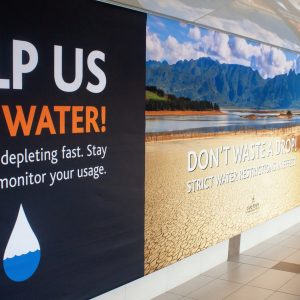Federal Water Tap, November 29: In Closely Watched Groundwater Case, Justices Rule in Favor of Tennessee
The Rundown
- The Supreme Court issues a ruling in Mississippi v. Tennessee, a first-ever case over an interstate groundwater dispute.
- The U.S. Geological Survey compiled a national map showing the depth from which groundwater is withdrawn for drinking water.
- The USGS also is sampling river systems for cyanobacteria and the toxins they produce.
And lastly, the EPA extends a deadline for deciding the fate of a proposed mine in the headwaters of Alaska’s Bristol Bay watershed.
“I want to partner with local mayors, governors and elected officials to be sure that as we’re allocating these precious resources, and that they go to projects that are ready to accept and benefit those who need them the most.” — Michael Regan, the EPA administrator, speaking to ABC News about implementing the $1.2 federal infrastructure bill. Regan made the comments before touring Wilkins Elementary School, in Jackson, Mississippi. The city’s water system, which was under a month-long boil-water advisory earlier this year, needs significant repairs.
By the Numbers
11: Number of river sites that the U.S. Geological Survey is testing for cyanobacteria and the toxins they produce. In the first two years of the pilot study, the USGS found that water temperature, light, nutrients, and upstream reservoirs are key factors controlling the prevalence of cyanobacteria in rivers. Rivers in the study include the Chattahoochee, Connecticut, Delaware, Missouri, Ohio, Sacramento, and Willamette.
News Briefs
Groundwater in the U.S. Supreme Court
It was a verdict that water lawyers had been awaiting.
In a unanimous ruling, the Supreme Court determined that Tennessee is not “stealing” Mississippi’s groundwater, a decision that sets precedent for settling future aquifer disputes.
The justices said that for a groundwater basin shared between states, the doctrine of “equitable apportionment” should apply. The court has applied that doctrine in the past to interstate rivers. That means dividing the pie fairly between multiple users of a resource.
Mississippi had argued that it had exclusive control over groundwater beneath the state. The court disagreed.
“We see things differently,” Chief Justice John Roberts wrote in the unanimous opinion that dismissed the case.
Mississippi had also sought at least $615 million in damages.
Studies and Reports
Groundwater Depth for Drinking Water
The U.S. Geological Survey compiled a national map showing the depth from which groundwater is withdrawn for drinking water.
Using a number of data sources and more than 7 million well records, the USGS fashioned a map that includes both domestic and public-supply wells.
The median depth for public-supply wells (202 feet) was deeper than domestic wells (142 feet).
On the Radar
Pebble Mine
The EPA will take more time to consider the fate of a proposed mine in the headwaters of Alaska’s Bristol Bay.
The agency has now set a May 31, 2022 deadline for deciding whether to block the Pebble mine. A preliminary decision to do so in 2014 was reversed by the Trump administration, a move that was then successfully challenged in court.
Federal Water Tap is a weekly digest spotting trends in U.S. government water policy. To get more water news, follow Circle of Blue on Twitter and sign up for our newsletter.
Brett writes about agriculture, energy, infrastructure, and the politics and economics of water in the United States. He also writes the Federal Water Tap, Circle of Blue’s weekly digest of U.S. government water news. He is the winner of two Society of Environmental Journalists reporting awards, one of the top honors in American environmental journalism: first place for explanatory reporting for a series on septic system pollution in the United States(2016) and third place for beat reporting in a small market (2014). He received the Sierra Club’s Distinguished Service Award in 2018. Brett lives in Seattle, where he hikes the mountains and bakes pies. Contact Brett Walton







Leave a Reply
Want to join the discussion?Feel free to contribute!